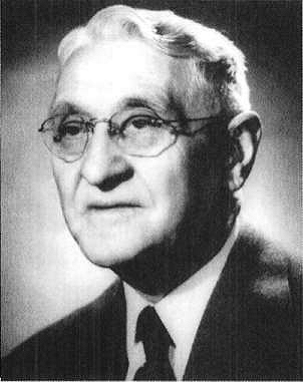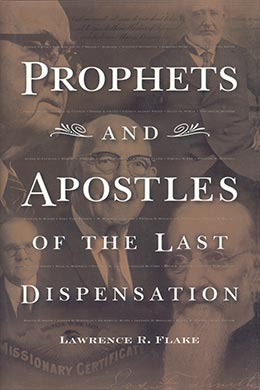Albert Ernest Bowen
Lawrence R. Flake, Prophets and Apostles of the Last Dispensation (Provo, UT: Religious Studies Center, Brigham Young University, 2001), 469–71.

Born: 31 October 1875, Henderson Creek, Idaho
Quorum of the Twelve Apostles: 8 April 1937 (age 61)
Died: 15 July 1953 (age 77), Salt Lake City, Utah
Until the age of twenty, Albert E. Bowen had virtually no opportunity for formal education. He was born the seventh child in a family headed by a pioneer father of noble character and a pioneer mother of Welsh descent who loved culture and refinement. Their farm was located in an obscure and unpromising outpost in southern Idaho and provided them with only a meager sustenance. But Albert learned well the lessons of frugality and toil and grew strong from the wrestle with nature for subsistence. Somehow, despite his austere and sheltered life, a strong desire for education filtered through, and after reaching an agreement in family council, he set out at the age of twenty to attend Brigham Young College in Logan, Utah.
It took him seven years to complete his work at the college, for his deprived background necessitated the simultaneous completion of both high school and college courses. But his age did not discourage him. Following graduation in 1902, he married Aletha Reeder. He was called almost immediately to leave her behind and accept a mission call to Switzerland and Germany.
After completing a two-year mission and obtaining employment at home as a member of the faculty at Brigham Young College, Brother Bowen met with a tragic loss. His young wife died in childbirth, leaving in her husband’s care two newborn infants. These twin boys were Brother Bowen’s only children.
Undaunted by this bereavement at an age when most men are in the full sway of their careers, Albert launched into a new field and entered law school at the University of Chicago. After receiving his degree with honors, he returned to Logan, where he practiced law successfully and married Emma Lucy Gates, a talented musician and cherished companion. Moving to Salt Lake City, he continued his law career and became involved in many important business ventures such as the Utah Construction Company, the American Savings and Loan Association, and the Utah Fuel Company.
Along with all his professional achievements, Elder Bowen constantly served the Lord in various Church callings. He served for twelve years on the general board of the Deseret Sunday School Union, became the general superintendent of the Young Men’s Mutual Improvement Association, and in April 1937 was chosen to be a member of the Quorum of the Twelve. In this capacity he served the Church valiantly, making particular contributions to the welfare program, to the Church Educational System, and in business and legal matters of the Church.
Brother Richard L. Evans beautifully described him and drew perhaps the most significant lesson from Elder Bowen’s life in these words: “He is a princely and an uncommon man . . . and his career is an encouraging example to those who are willing to work, who are tenacious for truth, and who have worthy ultimate objectives, no matter how late in life they may begin or how long it may take to see the desired end.” [1]
Notes
[1] Richard L. Evans, “Albert E. Bowen: A Lesson from One Man’s Life,” Improvement Era, November 1952, 846; see also Joseph Quinney, “Albert E. Bowen of the Council of the Twelve,” Improvement Era, May 1937, 278–81.
